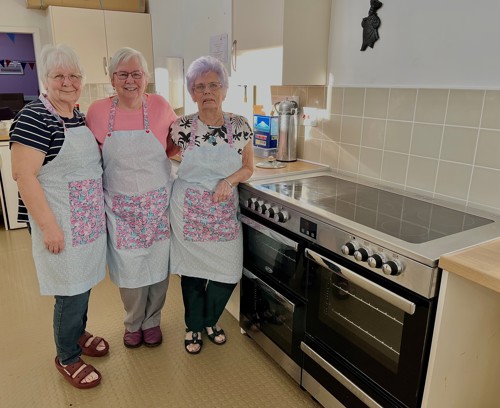Cooking and Kitchen Fire Safety in the Home
Last year, there were 66 accidental dwelling fires due to cooking in Cornwall, and kitchen fires account for just under half of all fires in the home nationally. To ensure all our tenants remain safe at home, please read our cooking fire safety advice below:
Cooking Safely
Most kitchen fires occur when people are distracted or leave things unattended. So, please remember:
- Don’t leave pans unattended
- Don't let yourself be distracted while cooking
- Don't cook if you're feeling the effects of alcohol, medication or drugs
- Turn saucepans so that their handles don't stick out and aren't over another hot ring
- Don't leave oven-gloves or tea-towels near a hot cooker
Cooker Safety
- Keep the oven, hob and grill clean, as a build-up of fat can start a fire.
Microwave Safety
- Don't put anything that is made of metal, or has a metallic finish or parts, in the microwave.
Don't dry clothes in the microwave.
Electrical Safety
- Keep electrical leads away from water.
- Check the toaster is clean and well away from curtains; empty the crumb tray regularly.
- Don't overload sockets - one plug per socket is the rule, especially if the appliance takes a lot of power (like a kettle)
- Don't run extension cables across the floor, as they can become worn.
- Don't leave appliances such as washing machines or dishwashers on at night.
- Remember: never use water on an electrical fire.
Deep-fat Fryer Safety
Chip pans are safe as long as you follow some simple guidelines:
- Before putting food in the pan, dry the food and test the temperature of the oil by putting in a small piece of bread. If the bread crisps quickly the oil is ready
- Never fill a chip pan (or deep-fat fryer) more than one-third full of oil
- Never leave the pan unattended when the heat is switched on
- Never put the food in the pan if the oil begins to give off smoke
- Turn off the heat and leave the oil to cool, otherwise it could catch fire
- Consider using a thermostatically controlled deep-fat fryer - this will ensure that the fat does not get too hot
If your pan does catch fire:
- Don't take any risks
- Turn off the heat if it's safe to do so - but never lean over a pan to reach the controls.
- If you have a fire blanket, put it over the pan.
- Don't use a fire extinguisher on a pan of oil - the force of the extinguisher can spread the fire.
- Never throw water over it.
- Don't move it - it is likely to be extremely hot.
- If you have put the fire out, leave the pan to cool completely.
If you are in any doubt about whether to try and put out a chip pan or any fire out yourself, then don't. Leave the room, close the door and dial 999.

Pictured: Chris, Sue and Ann who regularly use their cooker for community events at Bederkesa Court, Bodmin
